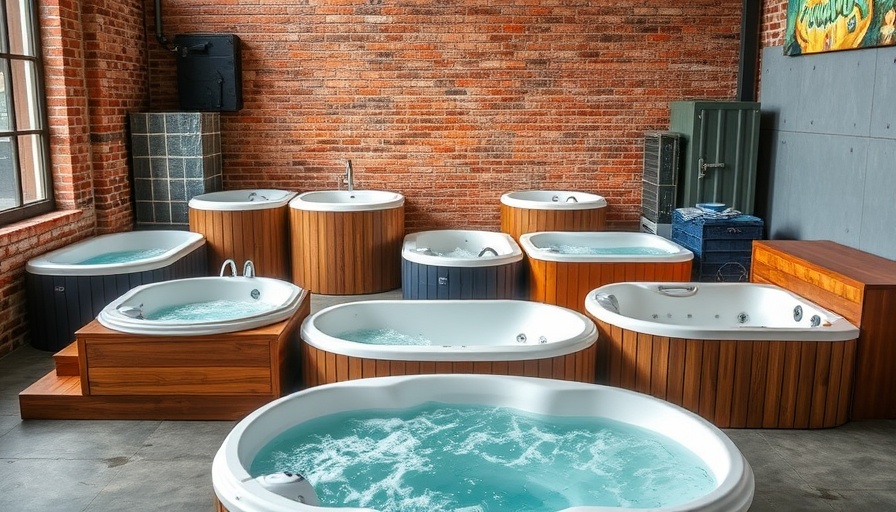
Why Cold Water Therapy Gains Popularity
The phenomenon of cold water therapy, particularly through cold plunges, has taken the wellness and fitness communities by storm, becoming a staple for recovery regimes. For digital nomads, the allure isn't just physical recovery—it's a chance to boost mental resilience and clarity crucial for productivity on the road. The feeling of invigoration experienced post-plunge incentivizes many travelers to incorporate this practice into their lifestyle, enabling them to better tackle both work and leisure.
Discovering the Challenges and Benefits
While the mental health benefits of cold plunging are frequently cited—such as improved focus, clarity, and mood enhancement—the journey to adopting this practice can be daunting. Cold plunges are not just about taking an icy dip; they require commitment and a mental fortitude that can be challenging for newcomers. Research supports that these experiences can lead to significant psychological gains, although physical recovery benefits may vary and are still subject to ongoing study. As digital nomads often face unique stressors, finding effective ways to decompress becomes all the more essential.
Choosing the Right Cold Plunge for You
Before making an investment, understanding the different types of cold plunge tubs is crucial. These products range from inflatable tanks to more sophisticated models with built-in chillers. For road warriors looking to set up a temporary space at a rental or campsite, a portable option like the Cold Pod Ice Bath Tub can be practical. Conversely, if your focus is on maximum durability and ease of use for long-term benefits, options like the Plunge Original Cold Plunge Tub or even a sturdy stock tank might be ideal.
Practical Tips for Incorporating Cold Water Therapy
When starting cold plunging, aim for shorter sessions, gradually increasing duration as comfort grows. A three-minute access point to cold water, maintained at sub-60°F is deemed effective and is an achievable goal for newcomers. Digital nomads should also consider creating an ambient setup—perhaps infusing the session with music or a calming atmosphere to ease the initial shock.
Final Thoughts on the Cold Plunge Experience
For nomadic professionals, embracing cold water therapy represents a commitment toward both physical and mental health. The perception of discomfort can transform into a rewarding self-care ritual that not only empowers resilience but also aligns perfectly with an active, health-centered lifestyle on the go.
 Add Row
Add Row  Add
Add 




Write A Comment